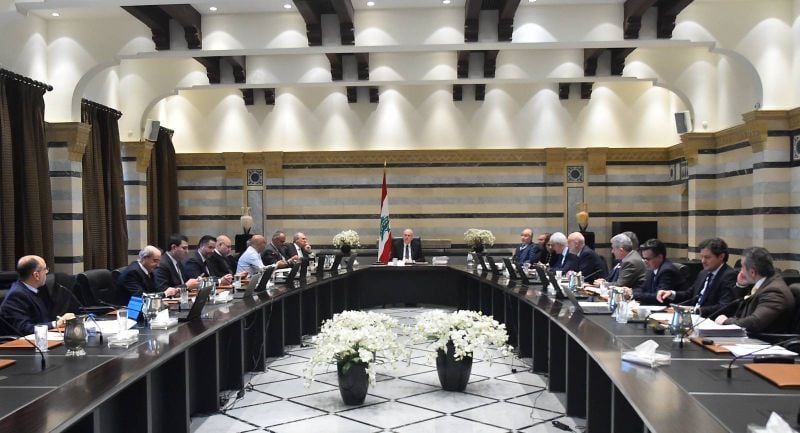
The caretaker government meeting under the presidency of Najib Mikati at the Grand Serail, Feb. 8, 2024. (Credit: Dalati and Nohra)
BEIRUT — The government has agreed to raise the official minimum wage in the private sector to LL18 million (around $200 at today's rate of LL89,500 to the dollar) caretaker Minister of Labor Mustafa Bayram announced Thursday following a Cabinet session that also involved approving a decree to increase school grants.
This move doubles the minimum wage, which has been sitting at LL9 million (around $100) since April 18, 2023.
Civil servants and public sector employees have been striking regularly since the economic crisis plunged the lira's value to unprecedented lows, subsequently rendering their salaries deeply insufficient.
In the summer of 2019, prior to the economic crisis, the minimum wage was set at LL675,000, i.e. $450 at the then-official rate of LL1,507.5.
Bayram also announced the launching of an online platform for all governmental services intended to make administrative procedures easier, noting that it is "cost-free to the state treasury."
Seeing as the platform itself is likely not "cost-free," it's not clear where the funding will be coming from. Bayram was not available to comment when contacted by L'Orient Today.
Intermediate certificate exams will be conducted
Caretaker Minister of Education Abbas Halabi stated that "Cabinet agreed to replace the intermediate certificate exams with exams conducted by private and public schools."
These exams will be conducted in schools according to correction standards set by the Ministry of Education, with standardized questions, according to Halabi.
The academic year for public school students in Lebanon was a bumpy one. Although the schools are not currently on strike, there has been a sequence of strikes all year as teachers protest the fact that their salaries aren't even enough to cover the cost of transportation to get to the schools where they teach.
With the exception of schools in southern Lebanon, public schools are open, but many of them are forced to operate on reduced days, as they aren't able to cover the cost of the usual five-day school week.
Most operate four days a week, many teachers are absent from their classes, and most skip days to save on transportation expenses.
A September Human Rights Watch report found that public school students in Lebanon are one-to-two full years behind their grade level amid an ongoing collapse of the Lebanese education sector fueled by the political and economic crises.
